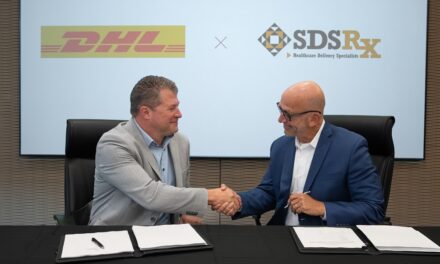
Most logistics companies haven’t committed to e-commerce, says new report

A global survey of nearly 900 decision-makers responsible for logistics or supply chain management and e-commerce has revealed that most companies have failed to fully implement an e-commerce strategy.
The report, conducted by DHL Supply Chain, reveals that 70% of B2C companies and 60% of B2B companies are still working towards the full implementation of their strategy, even though 70% of respondents rate e-commerce as ‘Very Important’ or ‘Extremely Important’ to their business in terms of volume and revenue.
The report, titled “The e-commerce supply chain: Overcoming growing pains”, also uncovered the major barriers to full strategy implementation, which include changing customer expectation, pace of delivery, and limitations in existing infrastructure.
Nabil Malouli, Global e-Commerce Product Lead at DHL Supply Chain said: “It’s clear to see the importance of considering quality customer service within the e-commerce strategy, but with customer expectations constantly evolving and changing, companies are under pressure to keep up with building out their e-commerce offerings – and the new supply chains they require, resulting in the challenge of full implementation.
“Supply chains need to keep up with, and respond to new business models, service expectations and technological needs of customers in order to capture new ones and retain existing ones.”
The evolving demands of e-commerce means that in the next 3-5 years over 50% of businesses will be making some type of change to their distribution strategy. To deal with this pressure many companies are opting to partner with a third-party logistics companies (3PLs) to augment their in-house resources and capabilities, enabling them to quickly and effectively scale to capitalise on e-commerce opportunities.
Malouli added: “What companies need in the e-commerce journey depends on where they are coming from – they are all in different places in terms of implementing their e-commerce strategy, which means they will have different strategies and expectations about how to move forward with their supply chains.
“Many companies opt to partner with a 3PL(s) to help them respond to this changing environment while ensuring they have the expertise and flexibility to meet changing customer expectations.”










